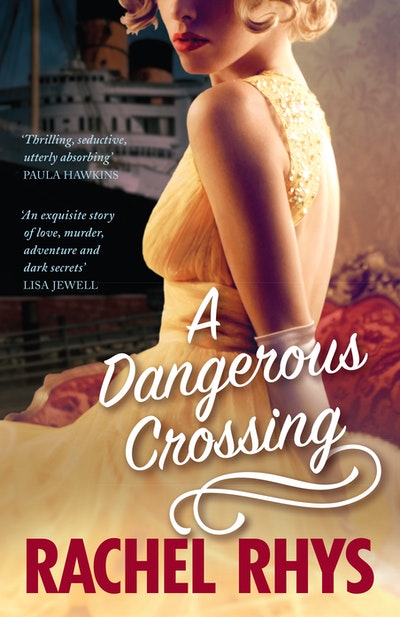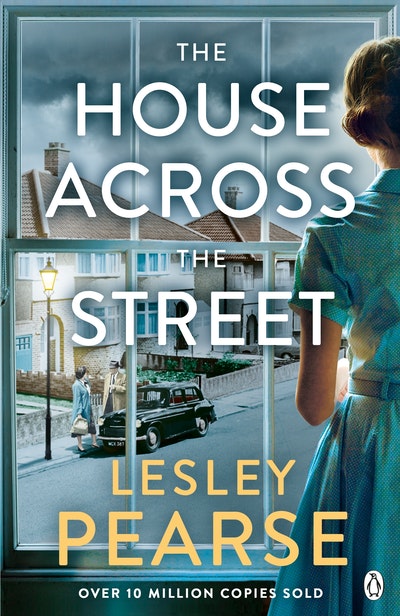- Published: 3 April 2017
- ISBN: 9780143783190
- Imprint: Bantam Australia
- Format: Trade Paperback
- Pages: 368
- RRP: $35.00
A Dangerous Crossing
Extract
September 1939, Sydney, Australia
Sandwiched between two policemen, the woman descends the gangplank of the ship. Her wrists are shackled in front of her and the men grip fast to her arms, but her back is ramrod straight, as if being held in place by the flagpole at the ship’s prow. She wears a forest- green velvet suit, the fashionably slim skirt skimming the top of her calves, and black stockings that end in green leather shoes with a delicate heel. Around her shoulders is a rust- coloured fox- fur stole, the head hanging down at the front as if it is watching how her shoes kick up the dust as she walks. The outfit is far too warm for the seventy- degree heat and the small crowd of onlookers feel grateful for their cool cotton clothes.
A matching green velvet hat sits on top of hair that has been pinned neatly back. The hat has a veil that falls over her face. They have at least allowed her this modesty.
She stares straight ahead, as if imagining herself somewhere quite different. She does not look around at the docks, where ships hulk out of the water, grey and pointed, like overgrown sharks. She does not gaze beyond them to where the famous Sydney Harbour Bridge fans out across the mouth of the estuary, connecting the south side to the north, or back the way the ship has just come to where the sandy beaches are strung out along the coast.
She is seemingly unmoved by the smells and the heat and the lush green vegetation on the distant hills, all so different to where she’s come from. The rasp of the seagulls overhead and the hum of the insects seem not to register, and when a fly lands briefly on the decorative brooch she wears just above her right breast, in the shape of a bird, its eye a tiny studded emerald, she appears not to notice.
There’s a reporter shadowing the trio as they make their way across the quay, past the throng of family and friends who are waiting to greet the new arrivals and staring with undisguised curiosity at the policemen and their charge. The crowd have been standing for hours in the heat, and the unexpected drama provides a welcome distraction from the tedium.
The reporter is a young man with shirt sleeves rolled up to his elbows. He seems uncertain how to behave. He usually covers the dock- beat, greeting the great liners that arrive from Liverpool or Southampton or Tilbury, quizzing the migrants on how they feel to have arrived at last on Australian soil. He likes his job. Since the government, with the help of the Church of England Migration Council, introduced the assisted- passage scheme to encourage more young women to travel to Australia from the UK, there are always groups of girls disembarking, eager to meet a genuine Aussie, their normal inhibitions melting in the uncustomary sunshine. They are usually only too glad to talk to him about where they’ve come from and their hopes for the future. Most of them will go straight into domestic service in one of the large homes in and around Sydney, many of them British- owned, where they’ll work as parlourmaids or cooks, for thirty- five shillings a week, with one day off, the shine of this brave new future wearing off rapidly in the dreary reality of domestic life.
He wonders if this woman is one of them, also destined for domestic service. It’s possible. In his experience, most of them choose their Sunday best for their arrival in this new world. He knows he should ask questions of her, of the policemen by her side. The rumours have been building since the ship docked. This is his opportunity to make something of himself, to grab the front page rather than settling for just a few column inches on page fifteen. Yet there is something about the woman that stops him, the way her face, under the green veil, is raised defiantly to the horizon, even while her hands, in their thin white gloves, shake.
He overtakes them and then turns back, so they cannot help but notice him. ‘Can you tell me your name?’ he asks the woman. He has his notebook out and his fingers grip tightly around his pen, poised to write, but she shows no sign of hearing him.
He tries addressing a question to the policemen who flank her.
‘Who is the victim?’ he asks, walking backwards ahead of them. And then, ‘Where is the body?’
The policemen look hot and agitated in their heavy uniforms. One is young. Younger even than the reporter, and his fingers on the green velvet of the woman’s arm are long and delicate, like a girl’s. He looks determinedly in the other direction so as to avoid the reporter’s questions. The other policeman is middle- aged and overweight, his square face red and shiny in the heat. He glares at the reporter through the half- closed, bloodshot eyes of a heavy drinker.
‘Let us through,’ he says brusquely.
Now the reporter is becoming desperate, seeing his chance of a career- making exclusive slipping away.
‘Have you any comment to make?’ he asks the woman. ‘Why were you on the ship? What brings you to Australia? How do you feel now that war has been declared?’
The woman falters, causing the young policeman to all but fall over his own feet in their outsized boots.
‘War?’ she whispers through her veil.
The reporter remembers now that she has been at sea for more than five weeks, and that the last time she had fresh news would have been when the ship docked in Melbourne two days before.
‘Hitler has invaded Poland,’ he tells her, his voice betraying the eagerness of the giver of powerful news. ‘Britain is now officially at war – as are we.’
The woman appears to sway. But now the police are propelling her forward again. Her back straightens once more as the trio brush past him as if he weren’t there.
The reporter knows he should follow them, but he has lost the appetite for it. There is something about the woman that chills him. Something more than the rumours of what she is supposed to have done.
Afterwards, when he hears the truth about what really happened on that ship, when half the country’s media is camped outside the prison, desperate for news, he will kick himself for not persevering. But for now he stands still and watches as she is led across the quayside and into the waiting car. The window is open, and his last glimpse of her as the car pulls away is her green veil fluttering against her face like a butterfly’s broken wing.
A Dangerous Crossing Rachel Rhys
With its intoxicating mix of murder mystery and a fateful love story, A Dangerous Crossing is an enthralling novel in the great tradition of Agatha Christie and Patricia Highsmith.
Buy now











